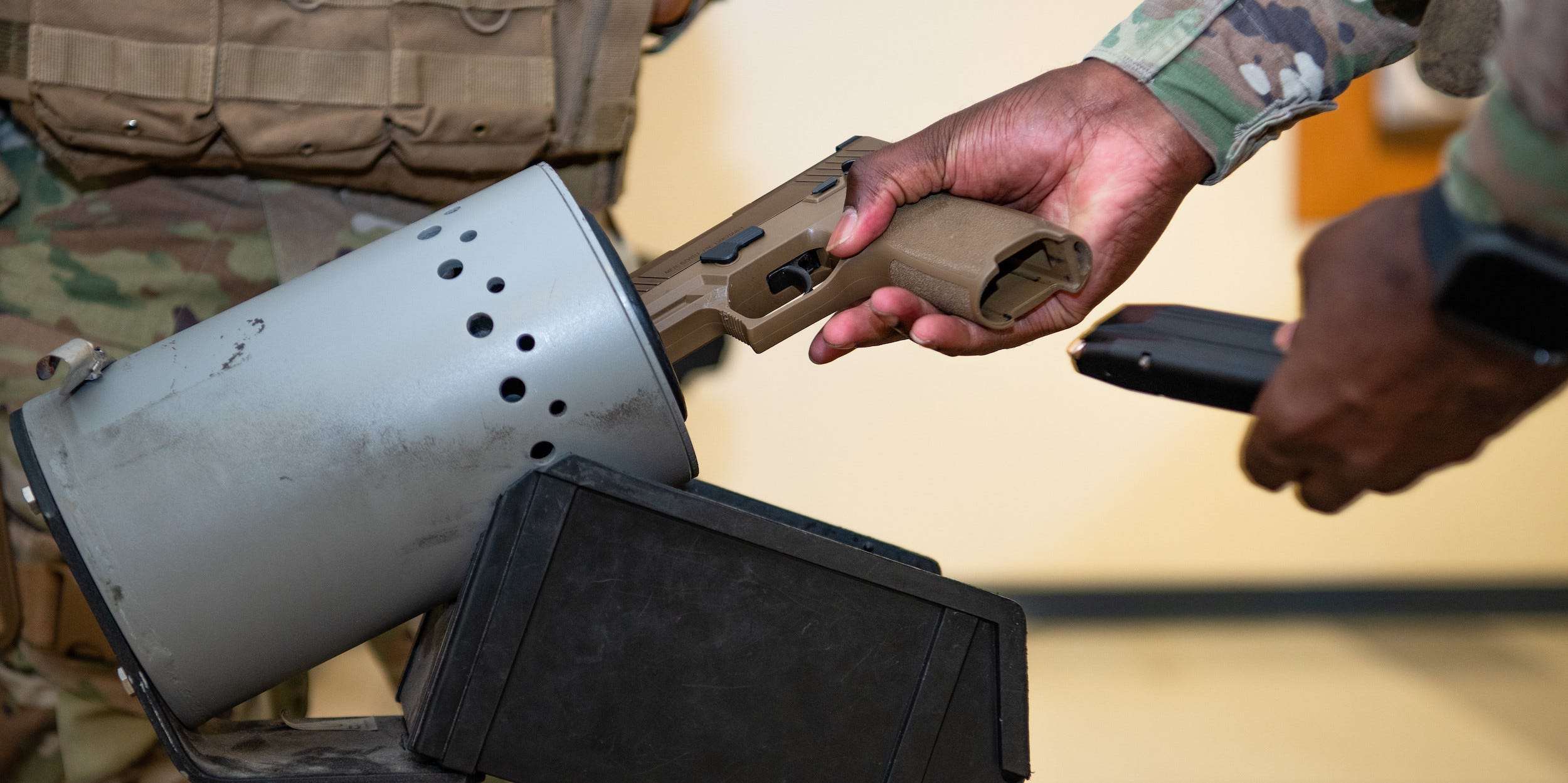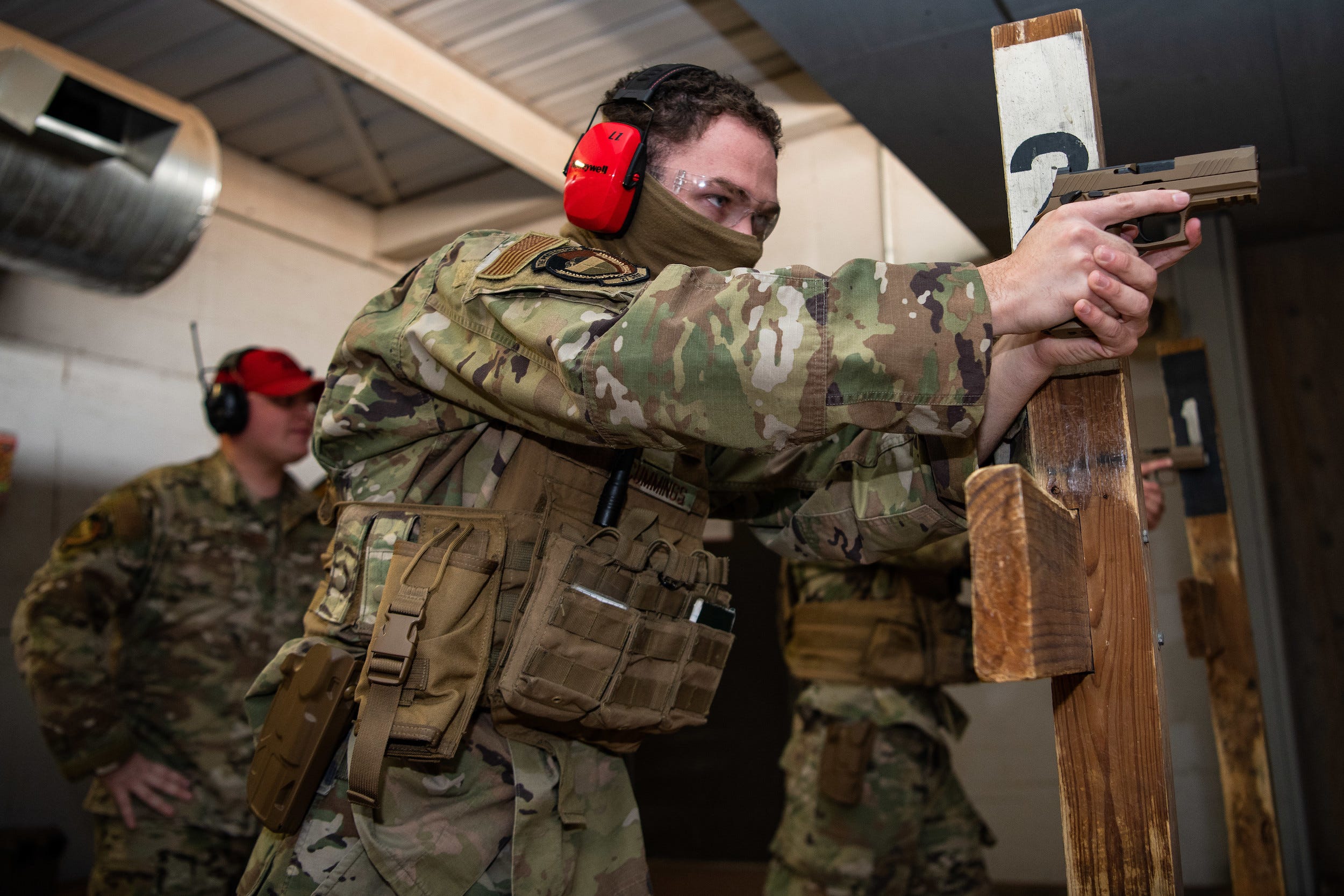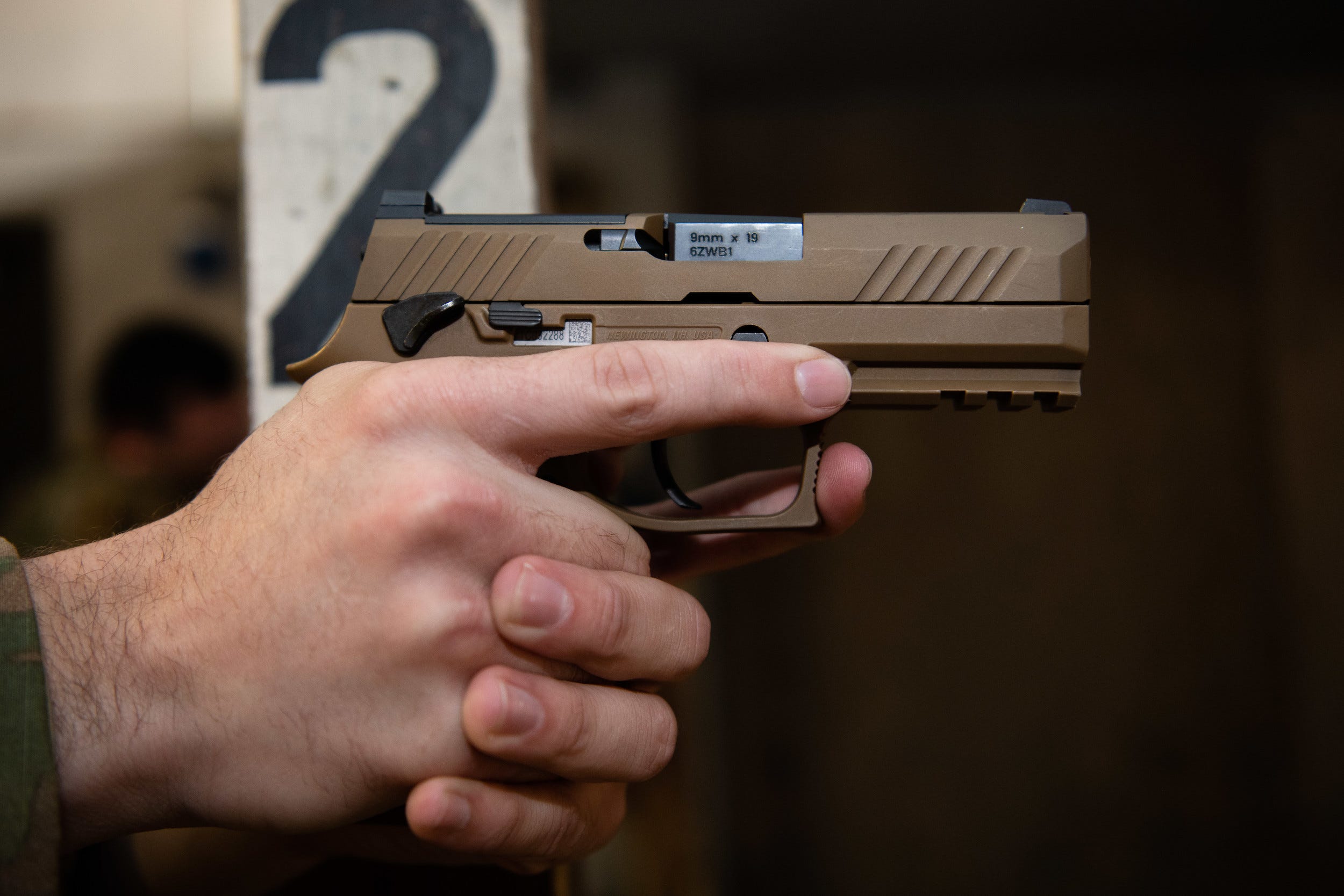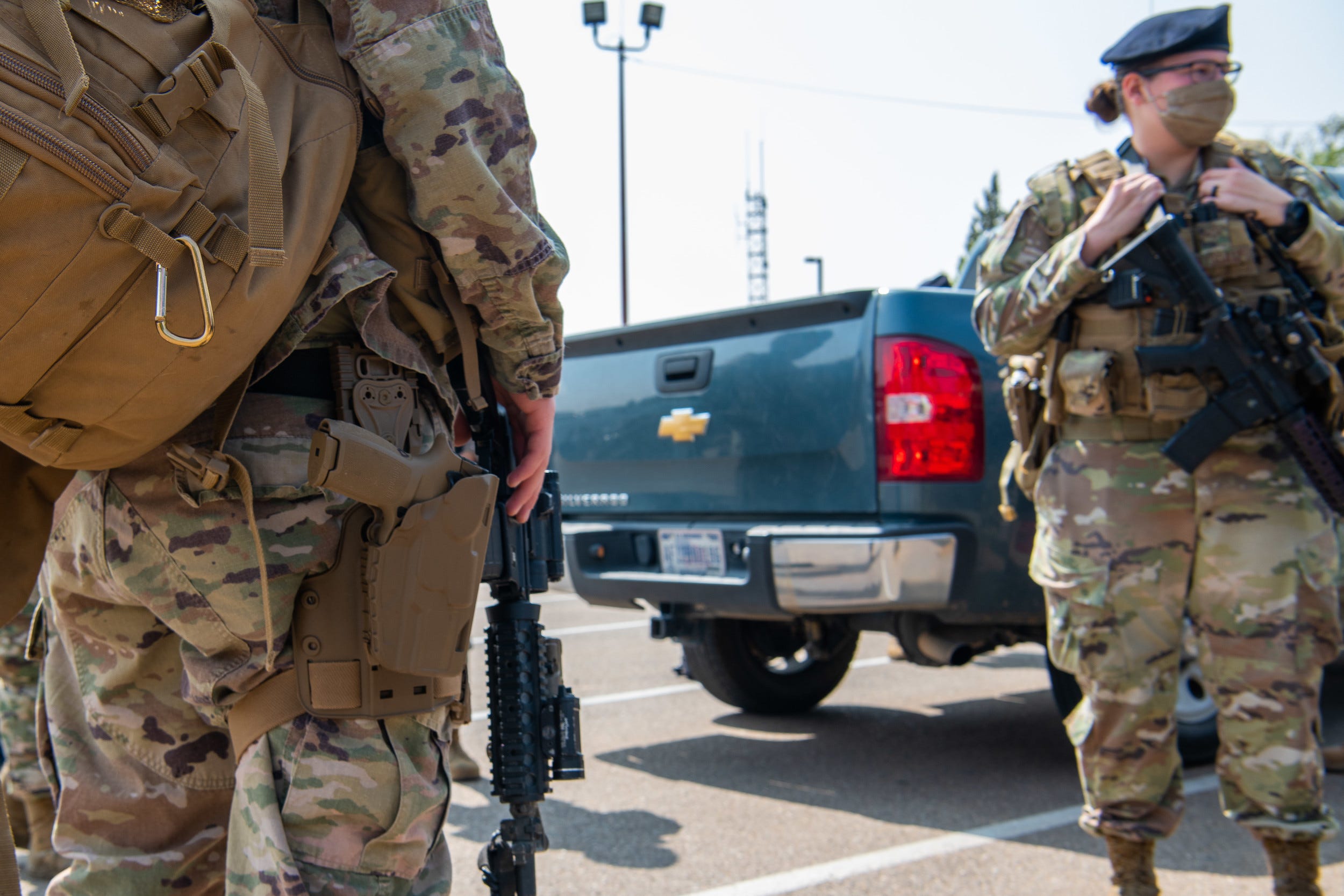
US Air Force/Senior Airman Maxwell Daigle
- The Air Force is adopting the M18 Modular Handgun System, a new sidearm developed by the Army.
- For members of the 27th Special Operations Security Forces Squadron, the new weapon’s adaptability and ease of use are big upgrades over the old M9.
- Visit Business Insider’s homepage for more stories.
CANNON AIR FORCE BASE, New Mexico — The defenders of the 27th Special Operations Security Forces Squadron do not take the safety of Cannon’s special operations missions lightly.
They are always looking for even the smallest of ways to improve the base’s security, a dedication demonstrated in their newest weapon.
The 27 SOSFS completed an operational transition to the M18 Sig Sauer Modular Handgun System last week after starting the change in March. The squadron is adopting the M18 as part of an Air Force-wide transition to the handgun from the decades-old M9 Beretta as the primary pistol for the service.
According to 1st Lt. George Beals, 27 SOSFS logistics flight commander, one of the biggest reasons for the switch is the M18 having a more consistent trigger pull than its predecessor.

US Air Force/Senior Airman Maxwell Daigle
“The first time you pull the trigger to fire an M9, you have to pull three times as hard as you would on following trigger pulls,” Beals said. “In the M18, the same amount of force is used every single time to pull trigger, which makes it easier for the shooter to hit their target every time.”
Another big difference between the two weapons have is what they are made out of.
"The M18 has a polymer construction, making it lighter and less prone to cracks or scratches than the M9's metal build," Beals said.
The ammunition capacity of the new handgun's magazines has also increased, putting more rounds at the user's disposal in a crisis.
On top of all those new features, the new handgun is built to adapt to the physical and situational needs of the user.

US Air Force/Senior Airman Maxwell Daigle
"It's a modular system, so we stock different grips users can change out to fit their hand size for comfort and versatility," said Senior Airman Miranda Dodrill, 27 SOSFS armorer. "It also has night sights and the ability to mount red dot sights for increased low-light visibility and accuracy."
She also finds maintaining the M18 to be easier as well.
"Because it has interchangeable handguards, you can break it down further (than the M9)," Dodrill said. "This allows us to clean in places we couldn't get to on the M9."
These upgrades are already being utilized by over 250 Cannon defenders on operational flights, despite the tight COVID-19 pandemic restrictions in place during the transition.
"It really did not take very long to get everyone through the training given the circumstances," said Staff Sgt. Kevin Lane-Brock, 27 SOSFS combat arms ins "It was pretty smooth running and everyone took to the handgun well … from what I've seen while instructing our airman on the weapon, it will give the shooter many more opportunities to close out enemies in close quarter combat as it will be easier to engage them with one hand if needed."

US Air Force/Senior Airman Maxwell Daigle
Lane-Brock's sentiment is matched by others who carry the weapon on a daily basis such as Senior Airman Hannah Entzel, 27 SOSFS response force leader.
"I personally like how light it is and how the grip feels, it feels better when drawing it from the holster and shooting (as opposed to the M9)" Entzel said. "I also like the way it looks, it's very clean and matches our uniform well."
The M9 has had a steady presence in the Air Force since 1985, but Tech. Sgt. William E. Adkins, 27 SOSFS armory non-commissioned officer in charge, said the M18 is well-prepared to fill its forerunner's shoes.
"It's not just a new handgun in the sense of it just simply replacing the M9," Adkins said. "It really lets the airmen take it and make it something that will conform to what makes him or her more lethal instead of the user having to adapt to the weapon, and that is a huge game changer."
